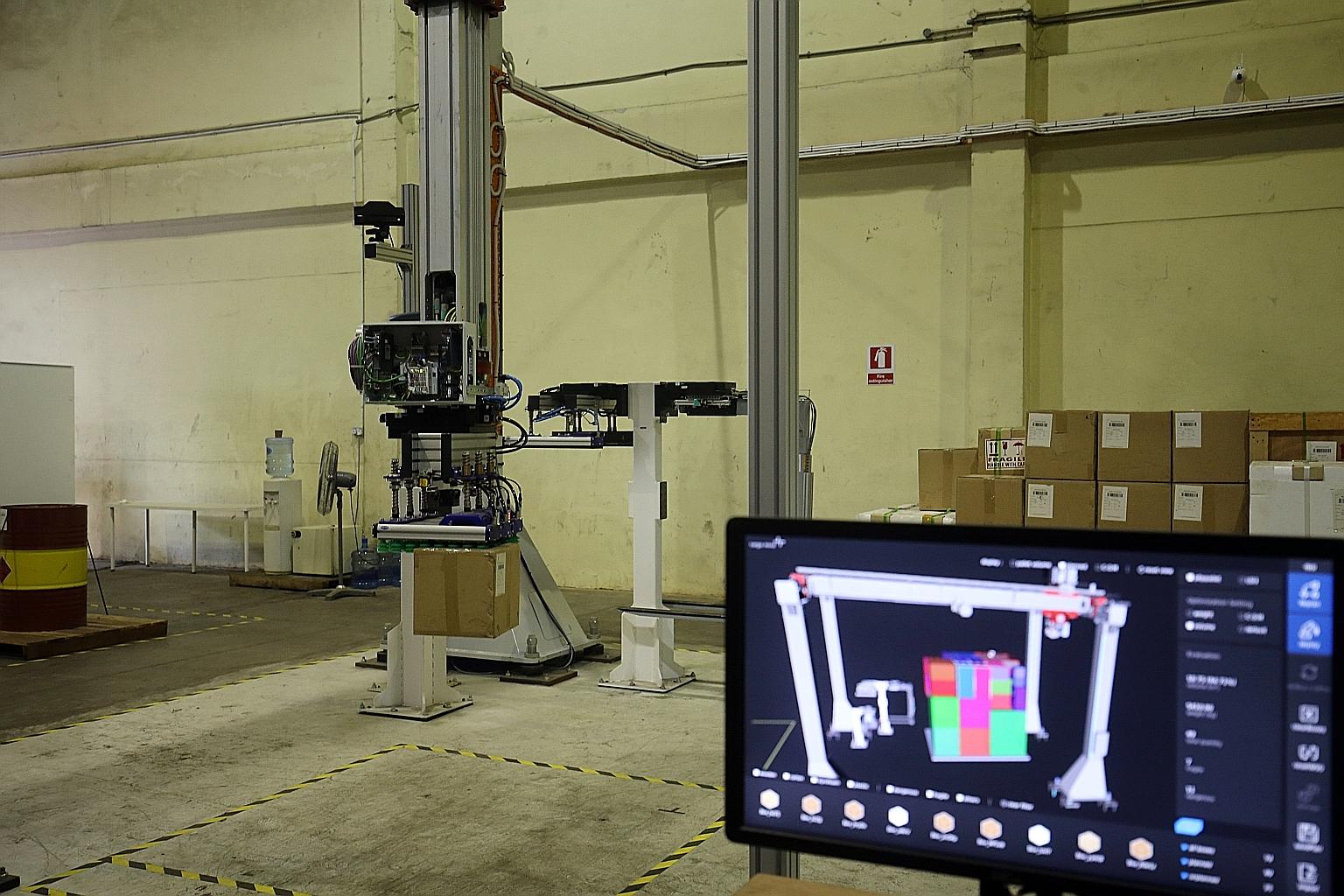Intelligent nation
$540m kitty to spur medical advances using AI, robotics
Research fund top-up will deepen nation's expertise in digital tech and automation
Sign up now: Get ST's newsletters delivered to your inbox

Created by TUMCreate with NRF support, AI software Speedcargo takes digital images of cargo packages and plans how they should be packed to optimise space. It is being used at Changi Airfreight Terminal.
PHOTO: LIANHE ZAOBAO
A national research fund will set aside an additional $540 million for the creation of artificial intelligence (AI) systems to identify patients predisposed to chronic diseases like diabetes, as well as to build robots to perform menial tasks and develop wearable sensors to provide early intervention for heart failure.
The financial boost will also lead to the development of other projects that will deepen the nation's expertise in digital technologies and automation through the fund called the Research, Innovation and Enterprise 2020 Plan.
The five-year fund, which was first announced in 2016, is managed by the National Research Foundation (NRF).
With the $540 million top-up, the $19 billion fund will now see a total of $900 million allocated to research and development in fields like AI, robotics and supercomputers.
The funding boost was announced at the 11th Research, Innovation and Enterprise Council meeting yesterday, with council members taking stock of the progress on the fund's aim to support R&D in Singapore.
Prime Minister Lee Hsien Loong, who chaired the meeting, said the council affirmed Singapore is on the right path.
"But we are sharpening our focus and making adjustments to the plans," he said.
"We must and will continue to invest in science, technology and innovation... to keep Singapore competitive and relevant globally."
With Singapore's elderly population rising and its workforce growth slowing - from 4 per cent per year to 1 per cent per year by 2020 - robots and AI are expected to become increasingly valuable in industries such as food preparation, cleaning and precision engineering.
For example, robots can work without tiring and be programmed to complete tasks with precision and consistency - qualities that are highly valued in those industries.
The NRF is supporting a number of projects, including Speedcargo, an AI software that takes digital images of cargo packages and plans how the packages should be packed to optimise space.
Speedcargo is currently being used at Changi Airfreight Terminal to make air cargo management smarter.
The system was created by Singapore-based research organisation TUMCreate. Founded in 2010, it is staffed by researchers from the Nanyang Technological University (NTU) and the Technical University of Munich (TUM).
Besides NRF-supported projects, the AI push has seen researchers collaborating on a number of initiatives, including one that involves a handheld acoustic sensor which looks like a stethoscope.
When it is placed on a patient's chest and paired with a smartphone app, the device can detect excess fluid in the lungs - a cause of breathlessness.
Within 10 seconds, an AI algorithm determines whether the patient's lungs are clear or whether fluid is accumulating inside them.
The prototype has been developed over a decade by a team from NTU and Tan Tock Seng Hospital and has achieved an accuracy rate of more than 92 per cent, according to Associate Professor Ser Wee of NTU's School of Electrical and Electronic Engineering.
This was based on a study of 86 patients from the hospital from 2012 to 2015.
The team has filed a patent for the device, which is being developed for the mass market.


